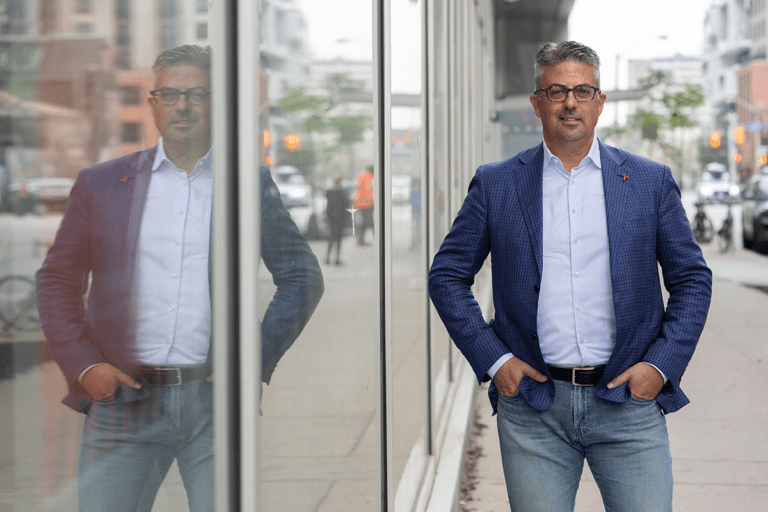By Jennifer Stranges, Unity Health Toronto
For more than two decades, St. Michael’s Hospital has led the way in HIV care and is now home to Ontario’s largest HIV program in Ontario, serving 1,700 patients.
It is also where you’ll find two dynamic healthcare leaders who have been here since the beginning. Dr. Gordon Arbess launched his career as a family doctor drawn to helping patients experiencing this deadly disease. Back then, he was also referring patients to Dr. Sean Rourke, a young neuropsychologist and scientist trying to understand and improve promising new treatments. “We bombarded Sean in those early days!” Dr. Arbess laughs.
Today, Dr. Arbess is the Clinical Director of the HIV/AIDS program with the St. Michael’s Academic Family Health Team. Dr. Sean Rourke is a Scientist with MAP Centre for Urban Health Solutions and the Director of REACH Nexus, a national research group working on how to address HIV, Hepatitis C and other sexually transmitted and blood-borne infections.
We spoke with Arbess and Rourke about their long histories serving people with HIV and AIDS, how far treatment has come — and what still needs to be done.
Tell me about yourself and why HIV/AIDS is an area you’ve focused your career on.
Arbess: I’m a primary care physician at St. Michael’s and I initially started my career at the Wellesley Hospital before it merged with St. Mike’s. I fell into this area because I did medical school at Queen’s University and while there, I met an individual who was single-handedly going into the community and penitentiaries to treat people living with HIV and Hepatitis C – I was really intrigued. When I moved to Toronto and did my residency with Wellesley Hospital, I was drawn to the work. When the hospital merged with St. Michael’s – a Catholic hospital – there were concerns among those of us doing this work about what that would mean. But it panned out beautifully and we’ve always felt well supported. I feel fortunate to be doing this type of work. It’s extremely rewarding work and it touches on all facets of humankind.
Rourke: I’m a neuropsychologist by training and a scientist, but I see myself more as a social entrepreneur now. I have a similar path to the start of my career as Gord – I started at the Wellesley-St. Michael’s Hospital. It was my first job and I’m still here! 1995 was a critical juncture in HIV because combination therapy was coming online. There was a lot of optimism that those therapies would ‘solve everything’. The concern at the time in my area of expertise was if the medications would eliminate dementia, and they have, but they haven’t eliminated this milder condition. So I was recruited to set up a clinical research program to explore the brain and cognitive health, and that’s how I started to work with Gord over 25 years ago.
St. Michael’s is a place with incredible, extraordinary people who are so committed, and like Gord said, to have the hospital behind the work we do on the clinical side, research, education – it makes our lives busy, we’re always over-extended – but it’s a real pleasure to be in a place where you get so much support. Today my work is about this: there are so many solutions, now it’s about getting them to people.

